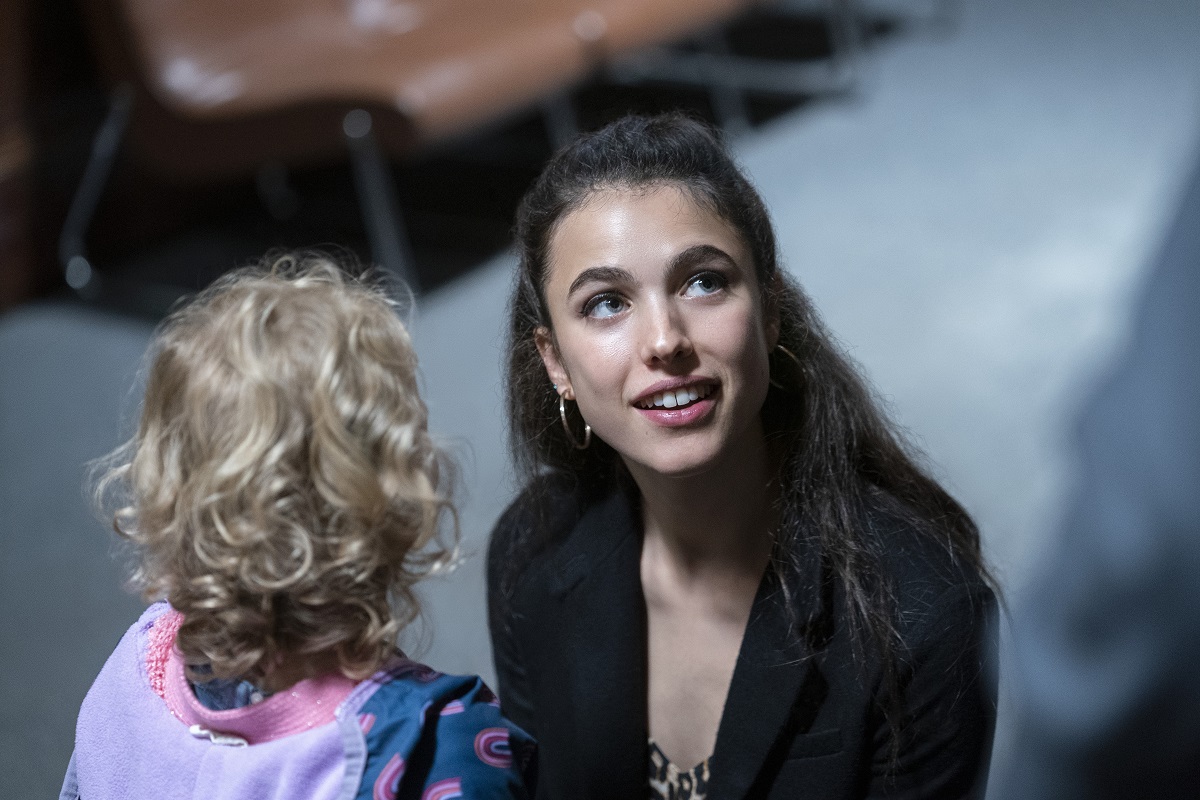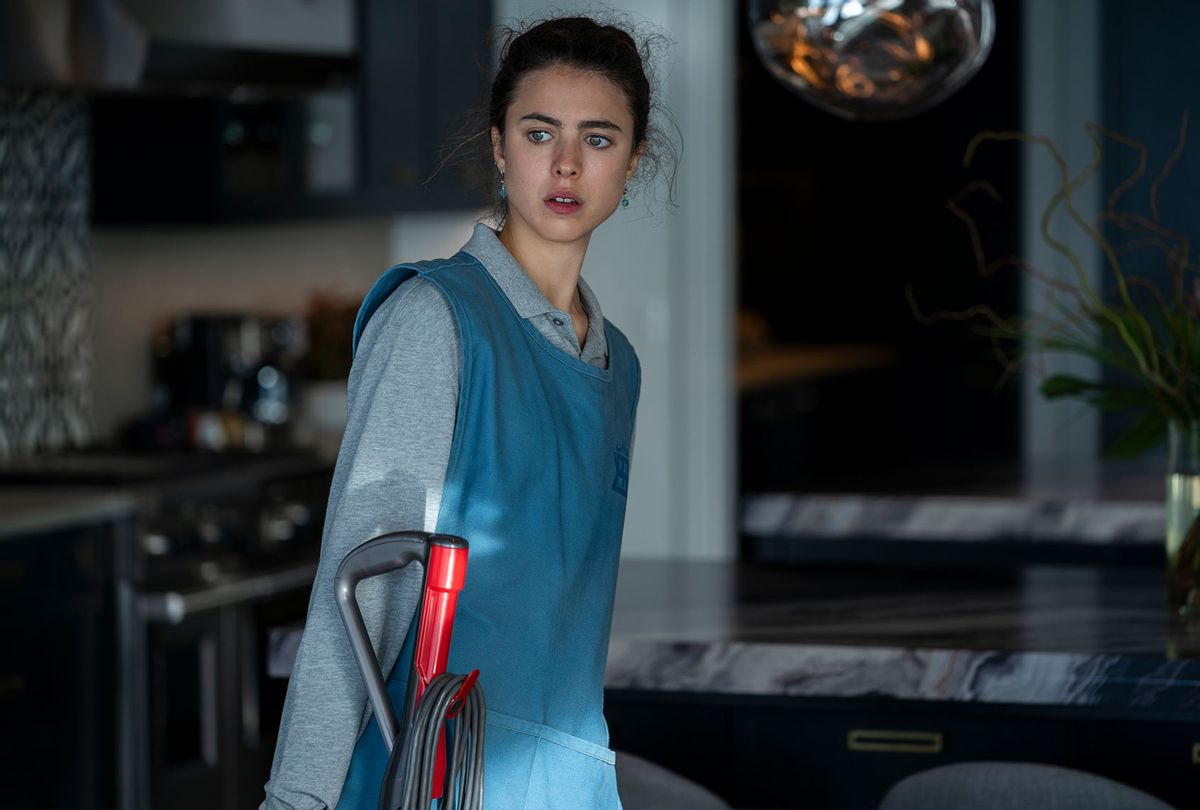

WORDS Melissa Mason
Maid has taken Netflix by storm over the past couple of weeks. Immediately shooting into the top ten, the limited series focuses in on Alex (played by Margaret Qualley), a young mother to a three-year-old daughter who leaves her abusive partner Sean (played by Jurassic World star Nick Robinson). The show has received acclaim for its nuanced depiction of abuse survivors, as well as the performances from its stars, particularly mother-daughter duo Andie MacDowell and Qualley.
It’s a brilliant series, but it’s also a difficult watch. Alex just cannot catch a break, running into roadblock after roadblock as she tries to keep her head above water for the sake of her daughter, Maddy. These roadblocks come in all forms; red tape in the government assistance system, friends and family that let her down, and simple bad luck.
Maid was also, at times, a frustrating watch. I found myself getting irritated at Alex and her questionable decisions. The multitude of times she could have whipped her phone out to document abuse or mistreatment, like when her ex-partner’s mother refuses her court-mandated contact with her daughter. The times she leaves Maddy with people she can’t trust, like her flighty and mentally ill mother. Refusing to document Sean’s treatment of her as abuse and therefore missing out on government assistance.
But this isn’t a glossy courtroom drama where we’re following a strong, confident hero as they fight for justice. This is a gritty look at the complexities of escaping abuse and the long, difficult road survivors face to truly break free.

Alex is a broken woman, beaten down emotionally by a partner Sean who uses violence and intimidation to control her. When she first escapes, she has no access to her finances, and doesn’t even recognize Sean’s behavior as domestic violence – because he has never hit her, she refuses to document her reason for leaving as domestic abuse.
She has to keep a job to maintain government assistance, but she needs Maddy minded to work. She has no personal support network – she’s estranged from her father, and her mother is in her own abusive relationship. Her friends are Sean’s friends – a common issue for domestic violence survivors.
Over the ten episodes, Alex battles to keep a job and look after Maddy, and at one point has no other option but to return to Sean – which results in her returning to their cycle of abuse.
It’s instinctual, I think, to feel frustrated with Alex if you are a woman like me who has never experienced domestic abuse. We look at Alex’s choices and behavior through our own lens – women who have not, very fortunately, not been downtrodden. We haven’t had our self-esteem torn to shreds by a man for years. We don’t live in fear every day. In turn, this notion was, for me, was the most powerful element of Maid – it opened my eyes to the reality of abuse survival. It’s not just monumentally difficult to leave an abusive relationship – that relationship also often leaves women completely ill-equipped to handle the processes and complexities of rebuilding their lives.
In the United States alone, 1 in 4 women have experienced severe intimate partner physical violence, according to the National Coalition Against Domestic Violence.
On average, there are about 20,000 phone calls made daily to United States-based domestic violence hotlines daily, and intimate partner violence accounts for 15% of all violent crime, according to the NCADV. Those are terrifying statistics, and they make stories like Maid all the more important – this is an epidemic, and the importance of strong, easily-accessible support systems for women escaping abuse has never been more apparent. Shelters are crucial – a women’s shelter saves Alex twice over, helping her get back on her feet with accommodation, clothing, technology and help with childcare. In the United States, government support needs to be easier to access.

The takeaway for me? Stay vigilant. Look for signs of domestic violence, both in your own relationships and in others. The National Domestic Violence Hotline has a list of questions you can ask yourself, or consider when it comes to friends and family, such as partners who try to stop their significant other from seeing loved ones, those that constantly check up on what their partner is doing, and those that dictate how household finances are spent. If you notice a change in a friend or family member, speak up and help practically – assist with making the person a safety plan, help them recognize that their experience is abuse, and support them on their difficult journey out of the abusive relationship.
If you’re located in the United States, you can find information on identifying signs of domestic abuse as well as safely and securely acquiring resources to help escape abusive situations through the National Domestic Violence Hotline. You can call their hotline at any time and speak with a live person to gain support.
We have a long way to go when it comes to both recognizing domestic abuse in all its forms, and with helping women escape domestic violence. Hopefully human insight into the experience via shows like Maid can lead to real change.
MAID is streaming now on Netflix.













